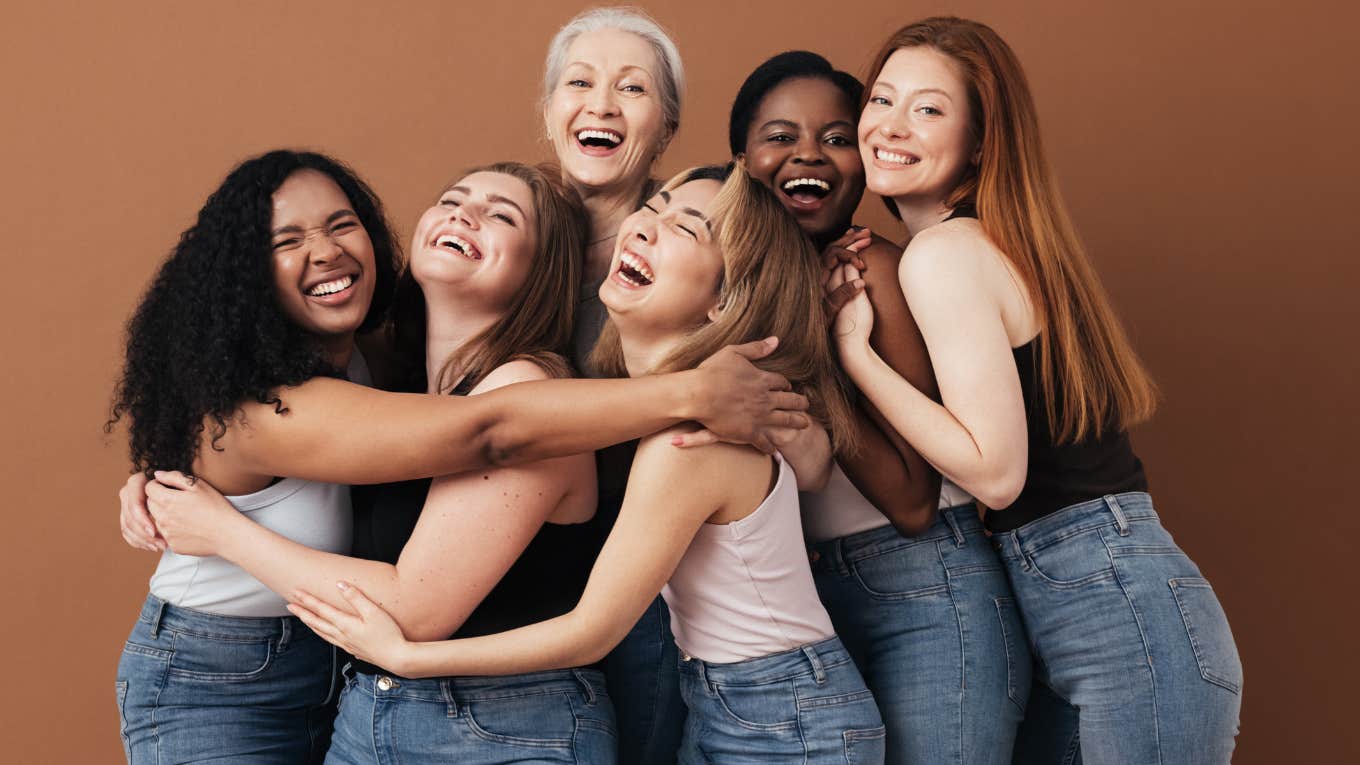Woman Pokes Fun At What Fashion Companies Think Women In Their 40s Should Be Wearing
"I have not been wearing enough couch-theme clothing."
 Artem Varnitsin / Shutterstock
Artem Varnitsin / Shutterstock Growing older is often something taken for granted, but a beautiful process nonetheless.
For women, growing older is often accompanied by society's outdated expectations of beauty and a persistent emphasis on remaining youthful. As women age, they often face discrimination, both professionally and socially, based on perceived deviations from these standards.
In a TikTok video, a content creator who goes by the handle @badmomhacks decided to find humor in how women are being expected to dress as they age.
She poked fun at the unattractive outfits fashion companies think women in their 40s should wear.
"I was scrolling through Facebook, and I saw this: 'Outfits for women over 40,' and as somebody who is 38, I got very excited about this because, hello, she's coming. So let's see what they recommended I wear," she began in her video.
Unfortunately, the outfits that were recommended by this particular fashion brand weren't the most flattering options. Going through the outfits that were being advertised, the woman decided to laugh instead of cry at the hideous choices.
"This little number is interesting," she commented, showing a photo of a woman wearing a blue asymmetrical top with hints of yellow, and bright yellow pants to match. "The neckline and the detail at the hip is definitely going to draw attention away from your aging face. We're bright. We're happy to be 40."
At one point, she even branded some of the outfits as "couch-themed clothing," due to how unflattering and modest the options were. "This really gets me excited to turn 40 in two years, I gotta be honest," she joked. "I have not been wearing enough couch-theme clothing, poppies, and yellow. I'm gonna have to redo my whole wardrobe 'cause I'm not prepared."
In the comments section, many people were equally appalled by the fashion brand's lack of clothes that women in their 40s would actually want to wear.
"I think this wardrobe rolled off the racks of the set of Golden Girls," one TikTok user wrote, while another user added, "I'm 46 and those are old lady clothes. Like for women in their 60's or above. Church lady clothes." A third user chimed in, "I think I've seen some of these outfits at my mother's retirement home. She's 85 and among the younger ones there."
Almost half of women in their 40s feel misrepresented in the clothing options marketed to them by fashion brands.
While the fashion industry claims to cater to a diverse range of audiences, the reality often falls short, leaving women in their 40s feeling overlooked and, at times, downright misrepresented.
According to survey data acquired by Fashion United, nearly 50% of clothing buyers above 40 years old feel unrepresented in fashion marketing. The data showed that nearly half of older women feel unrepresented in fashion marketing and that just 3% of digital native brands meet their fashion needs.
This points to a broader issue in an industry that, despite attempting to make strides toward inclusivity, continues to struggle with embracing the diversity and individuality of women beyond a certain age. This outdated expectation that women in their 40s should dress in more modest clothing solely because of their age only reflects outdated stereotypes and a narrow understanding of beauty and fashion.
While it may seem like a juvenile issue, women in their 40s should be encouraged to engage with and appreciate both the artistic and creative aspects of fashion without being confined to fixed notions of what modesty looks like. Beauty and fashion are not exclusive to youth, and there's a way that women can continue to dress stylishly at any age.
Women in their 40s, just like anyone else, deserve to feel seen, heard, and represented in the world of fashion. They should have the opportunity to feel confident in something as basic as the type of clothes that are marketed for them.
Nia Tipton is a Chicago-based entertainment, news, and lifestyle writer whose work delves into modern-day issues and experiences.

